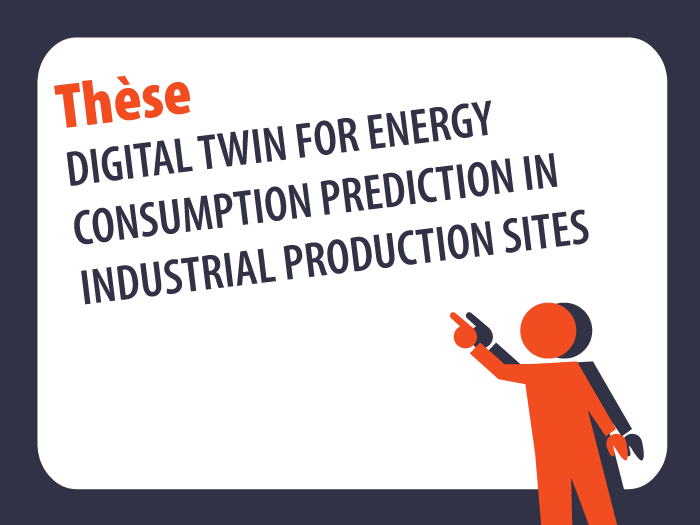
On Tuesday 5 December 2023, at 2.30 p.m., Antonio Baldassarre will defend his thesis at ISAE-Supméca entitled Digital twin for energy consumption prediction in industrial production sites, directed by Jean-Luc Dion and co-directed by Nicolas Peyret and Franck Renaud (ISAE-Supméca – Quartz).
Abstract
This research work aims to develop an effective tool based on Digital Twins for forecasting energy consumption in industrial sites. Digital Twins integrate analytical state models combined with Extended Kalman Filters in a learning process. The connection with the real counterpart is realised exclusively through non-intrusive sensors, allowing the practical implementation of the Digital Twin without special modifications to the system under test. Thanks to the Extended Kalman Filter, physical domain and virtual domain can be synchronised in real-time. This innovative architecture enables the model development of industrial systems (processes, machinery and components) on which complete knowledge is not available, by identifying model unknown parameters through short online training phases and small amounts of real-time raw data. Augmented State Extended Kalman Filters track the unknowns keeping virtual models updated as physical systems evolve. After the training process, the dynamic models can be disconnected from Extended Kalman Filters and used to predict the actual energy use under desired working conditions. The approach is validated in offline mode with reference to the electricity consumption of an automatic coffee machine, an academic use-case, which represents a real test environment and a blueprint to design predictive Digital Twins for other industrial systems. The system behaviour is observed by measuring the supply voltage and the total current absorbed by the appliance. Model development, model training and prediction performance are analysed and discussed for each main component of the coffee machine. The implementation procedure of the Digital Twin is also outlined for an industrial use-case, where the target process is energy consumption for the environmental heating of the industrial building, in order to maintain the indoor temperature at the desired set-point value. Preliminary results are obtained by processing synthetic data for indoor temperature profiles and actual data for external weather conditions. The method proposed in this thesis is developed in the context of energy consumption optimization in the manufacturing industry through refined energy management and planning.
Key words
# Digital Twin
# Energy consumption prediction
# Sustainable manufacturing
# Extended Kalman Filter
# Parameter identification










